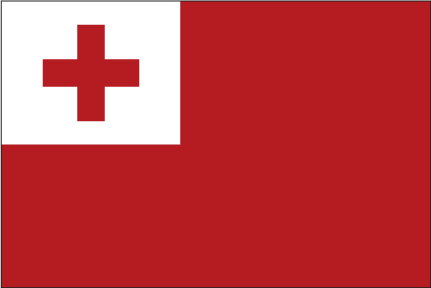Login form
Customs of Tonga
Marriage and Family
 Marriages are times of great celebration. Ceremonies follow the religious traditions of the families. Festivities after the ceremony can include hymn singing, a large feast, and many speeches. Young couples may choose to move in with the bride’s parents, but they generally have their own home.
Marriages are times of great celebration. Ceremonies follow the religious traditions of the families. Festivities after the ceremony can include hymn singing, a large feast, and many speeches. Young couples may choose to move in with the bride’s parents, but they generally have their own home.
Parents, children, grandparents, uncles, aunts, and cousins are close-knit and help each other whenever possible. In many cases, all family members work together to plant, harvest, cook, and fish. When young married couples live with the woman’s parents, the man takes responsibility to provide food for that family. Although families are getting smaller, they still average three or four children.
In a traditional Tongan family, the father is considered the head of the family and the mother is his subordinate. However, brothers are subordinate to their sisters (when close in age). The oldest daughter (rather than the oldest son, as in many societies) receives the best of the family’s resources. A father’s eldest sister (mehekitanga) is the leader (fahu) of that nuclear family in the highly organized extended family system.
Homes in modern
Eating
Tongans traditionally eat two meals each day that may consist of yams, taro leaves, sweet potatoes, cassava, fish, or pork. Lu pulu, a popular dish, is cooked taro leaves with coconut cream and corned beef. Pork (especially roast pig) and chicken are the primary meats, and fish (tuna, shark, grouper, and parrot fish) is a typical main dish. Tongans enjoy abundant mangoes, guavas, oranges, mandarins, lemons, limes, grapefruits, papayas, watermelons, pumpkins, passion fruit, bananas, plantains, avocados, and coconuts. Local vegetables include tomatoes, carrots, onions, green peppers, and cabbage. Tongans produce most of their own food, but an increasing amount is being imported.
Families eat their meals together whenever possible. On outer islands, they sit on woven mats to eat, but urban households more often have dining tables and other Western furniture. Although the hands were traditionally used for eating, standard utensils are now most common. Conversation is kept to a minimum while eating. When guests are present, they usually eat with a few selected members of the family. Children are sent away or they eat in a different place. Guests are served first, and the person who prepared the meal usually eats last. Standing while eating and drinking is not appropriate, even though some may do it.
Socializing
It is appropriate to greet people either with a handshake or a verbal greeting. Men often hold the handshake for several seconds during a brief conversation. Malo e lelei (“Hello”) is a common daytime greeting, in addition to several different phrases that can be used to say “Good morning.” Two such phrases are Malo e lelei ki he pongipongi and Malo e tau mo eni. “Good evening” is expressed as Malo e lelei ki he efiafi ni. Visitors might be greeted with Talitali fiefia (“Welcome”). Upon being introduced, one might say Fefe hake? (“How do you do?”). The polite response is Sai pe, malo (“Fine, thank you”). When parting, one says ‘Alu a, to which the other replies Nofa a (both of which mean “Good-bye”). Tongans customarily call acquaintances by their first names. People meeting for the first time often use titles and family names to show respect. If professional titles are not used, Tangata’eiki (“Mr.”), Fine’eiki (“Mrs.”), and Ta’ahine (“Miss”) are appropriate.
Tongan society is closely knit, and socializing is an integral part of daily life. Women seldom go anywhere without being accompanied by another woman. Tongans passing each other while walking always greet each other, even if not personally acquainted. And relatives (who are often neighbors) frequently visit each other, especially on Sunday afternoon.
Most visits during the week are spontaneous. Unexpected guests are usually welcomed, although if a family feels their house is not adequately furnished or cleaned, they may be reluctant to invite a visitor in. Visitors remove their shoes upon entering, and are often directed to the best seats in the house. In a traditional home, men sit cross-legged on the floor and women sit with both legs tucked behind them to one side. Children are kept out of the way as much as possible. Hosts usually offer refreshments such as water, coconut, otai (a mixture of cut fruit), or soda. A complimentary speech from departing guests is a high honor to the family.
Tongans generally enjoy giving and receiving personal compliments. Guests often compliment the home or family, but should avoid admiring any one object too specifically because it may cause the host to feel obliged to offer the item as a gift. Tongans welcome but do not expect gifts from guests, and gifts are not opened in front of the person giving the gift. Flowers are considerate gifts on special occasions such as weddings or funerals, but other items may be more appropriate when visiting the home socially. Honored or new guests may be given a gift by hosts when they leave. It is a terrible insult to decline such offers, which may include fruit, tapa cloth, or handicrafts.
Recreation
Tongans are sports enthusiasts.
Holidays and Celebrations
The official holidays in Tonga include New Year’s Day (1 January), Easter (celebrated Good Friday through Easter Monday), Anzac Day (25 April), the Crown Prince’s Birthday (4 May), Emancipation Day (4 June), the Birthday of King Taufa’ahau Tupou IV (4 July), Constitution Day (4 November), King George Tupou I Day (4 December), and Christmas Day (25 December). Anzac Day is a
Source: Encarta Interactive World Atlas

